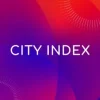When I first started trading, broker execution was something I rarely thought about (and probably something you rarely think about now!) because I was focused on finding the right strategy, understanding technical indicators, and trying to make sense of market movements. But after getting some massive slippage from prop firms, I quickly realized that how trades are executed is actually a pretty crucial element to understand. Terms like ECN, STP, and NDD often get thrown around, but what do they actually mean?
Let’s break them down into simple terms so you can better understand how they impact your trading. We’ll start with the difference between ECN & STP then move onto NDD vs DMA.
What’s the Difference Between ECN & STP

What Does STP Mean?
STP stands for Straight Through Processing. In essence, when you place a trade your order is sent directly to the market without any interference from the broker.
Essentially, the broker acts as an intermediary between you and liquidity providers (like banks or other financial institutions) – keep this in mind, it will be important for later.
Key Features of STP:
- No Dealing Desk (NDD): STP brokers don’t have a dealing desk, meaning they don’t create an internal market. Instead, they pass your order through to the liquidity providers.
- Variable Spreads: Since your orders are filled based on real-time liquidity, the spreads can fluctuate depending on the market conditions. Typically, when the market is active, spreads can be tighter, but they may widen during low liquidity periods.
- Transparency: STP brokers often offer greater transparency, as your trades are executed without manipulation. They don’t trade against you, which can be the case with some market maker models.
An important point to remember with STP brokers is that while you won’t face conflicts of interest (like dealing with a broker who trades against you), you might experience some delays in execution due to the time it takes for the order to reach the liquidity provider. But overall, for traders seeking reliability and fairness, STP is a solid choice.
What Does ECN Mean?

ECN stands for Electronic Communication Network, and it’s another popular execution model, favored by more advanced traders. When using an ECN broker, your orders are sent to a network where they are matched with other participants’ orders in the market – this is like trading ‘against’ someone who would be selling whilst you are buying etc.
The key thing here though, the person you are buying from or selling to is NOT the broker (the same applies in STP), it’s another market participant from a ‘network’ of participants – hence the name. This network could include other retail traders, banks, and financial institutions.
Key Features of ECN:
- Direct Market Access (DMA): Unlike STP, where your orders go through liquidity providers, ECN gives you direct access to the market. Your buy and sell orders are matched directly with other traders or liquidity providers.
- Low Spreads: ECN brokers generally offer very low spreads, often starting from 0.0 pips, but they usually charge a commission on each trade to make up for the low spreads.
- Depth of Market (DOM): One feature that sets ECN apart from STP is the ability to view Depth of Market, which allows you to see the order book with buy and sell orders at different price levels. This gives you insight into where liquidity exists in the market and can be particularly useful for scalpers or day traders.
ECN brokers are a great choice if you’re trading large volumes or need the most competitive spreads possible. However, they may not be ideal for beginners due to the added complexity and the commission charges.
ECN vs STP: Which is Better for You?
Both ECN and STP have their own advantages, and neither is objectively better than the other—it just depends on what kind of trader you are.
- ECN is ideal for: High-volume traders, scalpers, and traders who want the tightest spreads possible. If you prefer transparency and direct market access, ECN is a solid choice.
- STP is ideal for: Traders looking for a balance between convenience and competitive pricing. STP brokers typically suit traders who want reliable execution but may not need the ultra-tight spreads offered by ECN.
One thing to note is that both ECN and STP are NDD, meaning you won’t face broker intervention in your trades. This is an important consideration if you’re looking to avoid potential conflicts of interest.
What’s the Difference Between DMA and NDD?

What Does NDD Mean?
NDD stands for No Dealing Desk, and while this term sounds technical, it’s actually quite straightforward. An NDD broker doesn’t have a dealing desk to process trades. Instead, they automatically send your orders to the market. They don’t intervene with trade orders. Both ECN & STP brokers are NDD as they either pass your orders directly to liquidity providers or to the market.
Key Features of NDD:
- No Broker Intervention: Unlike brokers with dealing desks that might manipulate prices or execute trades against you, NDD brokers pass your orders directly to liquidity providers like banks, hedge funds, or other major players. This removes any potential conflict of interest where the broker is profiting from your losses.
- Faster Execution: Because there’s no dealing desk involved, trades are typically executed much faster. This is especially important for those of us who trade high-volatility events like news releases, where seconds can mean the difference between profit and loss.
- Reduced Conflict of Interest: NDD brokers don’t trade against you. This can create a more trustful environment, as some brokers with a dealing desk might take the opposite side of your trades and create a potential conflict.
- Variable Spreads: NDD brokers often offer variable spreads, which can widen during times of low liquidity (like during market close hours) but can be quite tight when liquidity is high. So, while you might not always get the raw market spreads DMA offers, you still benefit from fast, competitive pricing.
NDD brokers are great for traders who value transparency and fairness in execution. While spreads might be variable, the assurance that your orders are processed without broker manipulation can give traders peace of mind.
What Does DMA (Direct Market Access) Mean?

DMA is all about giving traders direct access to the financial markets. Imagine it as having a VIP pass to the trading floor where you’re placing your order directly in the market. The broker also doesn’t interfere with your trade; they’re just providing the gateway. DMA is often used by institutional traders but is also available to (us) retail traders through certain brokers.
Key Features of DMA:
- Market Transparency: You get to see the depth of market (DOM), which means you can view the buy and sell orders at various price levels. This gives you insights into market liquidity and helps you make better-informed trading decisions.
- Raw Market Spreads: With DMA, you’re accessing raw spreads without the broker marking them up. This usually means tighter spreads but comes with the trade-off of paying a commission on each trade. For instance, during high liquidity times (such as major market openings), you might see incredibly tight spreads, which can be great for high-frequency traders.
- Limit Order Flexibility: You’re not just at the mercy of the broker’s pricing; you can place limit orders, ensuring you enter or exit a trade at a price you set, rather than settling for what’s available at the moment.
DMA brokers provide access to raw market spreads, which means that during periods of high liquidity, spreads can be incredibly tight. However, during times of low liquidity, spreads may widen, and execution might be slower depending on the market environment.
Key Differences Between DMA and NDD

While both DMA and NDD offer no broker interference in trade execution, they function slightly differently in practice.
- Market Access:
- DMA: Traders have direct access to the exchange or liquidity pool. You place orders directly in the market.
- NDD: The broker acts as an intermediary, sending orders to liquidity providers or banks, but they don’t take the other side of your trade.
- Order Transparency:
- DMA: You can see the depth of the market and choose the price at which your order will be filled.
- NDD: You don’t see the order book; instead, you rely on liquidity providers to fill your order at the best possible market price.
- Cost Structure:
- DMA: DMA brokers typically offer raw market spreads with a commission on each trade. The spreads are often tighter because they reflect the real market conditions.
- NDD: Spreads are usually variable and can be slightly wider compared to DMA. NDD brokers often don’t charge a commission but may mark up the spreads instead.
- Execution Speed:
- DMA: Execution times may vary depending on liquidity and market conditions since you’re interacting directly with the market.
- NDD: Execution tends to be faster because there is no dealing desk slowing down the process, and orders are often filled by liquidity providers like banks.
- Type of Trader:
- DMA: Typically appeals to institutional traders or advanced retail traders who need direct control over their trades and prefer tight market spreads.
- NDD: Better suited for retail traders who want quick execution without worrying about dealing desk manipulation or complex order management.
NDD vs DMA: Which is Better for You?
To be honest most of the time you don’t get a choice, but you CAN control which broker you choose and you can ensure you keep an eye out for NDD or DMA or even ECN & STP when doing your homework. The best place to look is our broker reviews section. The choice between DMA and NDD depends on your trading style and what you value most:
- DMA is ideal if you’re an advanced trader or an institution that needs transparency and precision in your trades. If you’re someone who thrives on precision (especially for high-frequency trading or scalping), DMA offers the raw spreads and detailed market data you need to fine-tune your strategy.
- NDD is a fantastic option for retail traders who want speed and simplicity. With no dealing desk interference and fast execution, it’s really for those who don’t need to see the depth of the market but value quick trades without worrying about conflict of interest.
How Do These Terms Affect Your Trading?
The execution model of your broker can directly impact your trading costs, slippage, and overall profitability. Here’s how:
- Trading Costs: With an ECN broker, you’re likely to enjoy lower spreads, but you’ll need to pay a commission on every trade. STP brokers may have higher spreads, but there’s no commission, making it simpler to manage your costs.
- Slippage: The time it takes for your order to reach the market can lead to slippage. With ECN, where orders are executed directly in the market, slippage might be lower. STP brokers, however, rely on liquidity providers, which might occasionally cause delays.
- Order Transparency: ECN brokers offer greater market transparency, allowing you to view the order book. This can be an advantage if you like seeing how much buying or selling pressure exists at different levels.
Final Thoughts
Whether you choose an STP or ECN broker will depend on your trading style, risk tolerance, and what kind of market access you prefer. For traders who value fast execution and market transparency, an ECN broker may be the best option. On the other hand, if you’re looking for a broker with lower overall costs (without worrying too much about commissions), an STP broker might suit you better.
Whichever you choose, make sure to align your trading style with the execution model that best fits your needs.
Sources
Paul Williams is an experienced Senior Analyst working with experience working for HSBC in their derivatives trading division for 5+ years. He is a regular contributor to major financial news publications and has experience both trading his own capital and managed capital. He is currently the Chief Analyst and Reviewer for Spreadbet.AI.






![The Best Forex Spread Betting Broker in the UK [2025]](https://spreadbet.ai/wp-content/uploads/2025/05/joshua-mayo-bmj1Vl77ZWM-unsplash-100x100.jpg)









